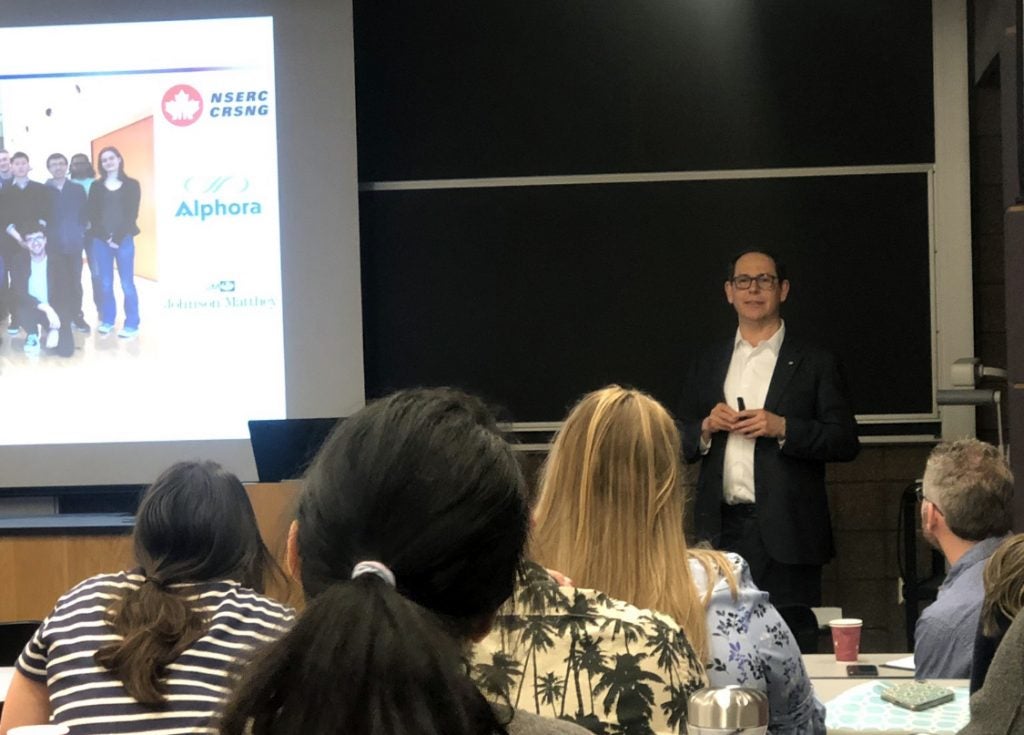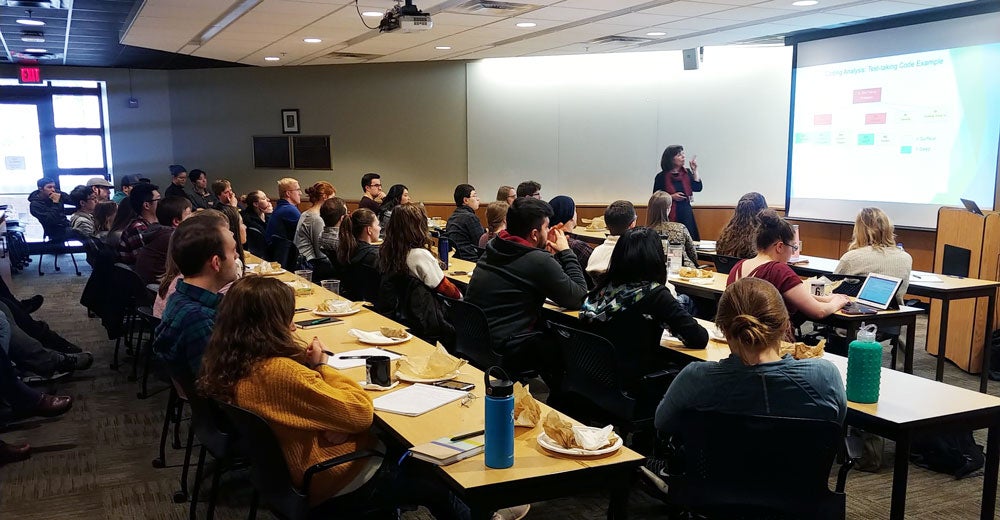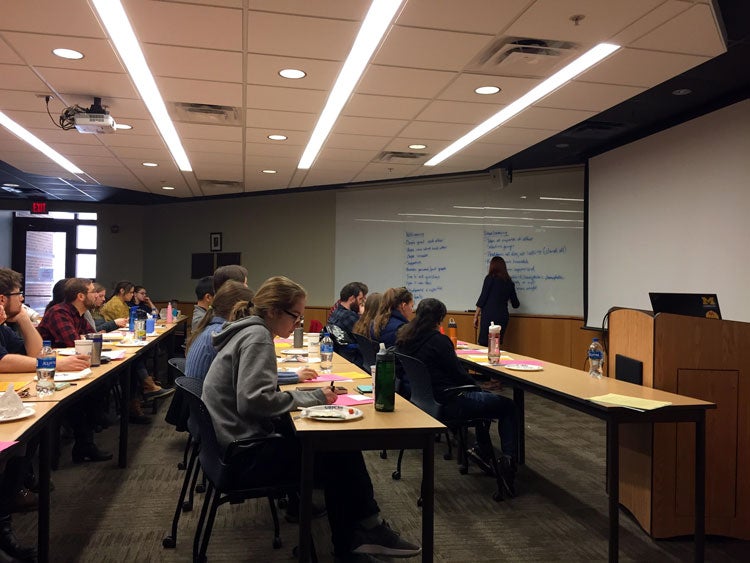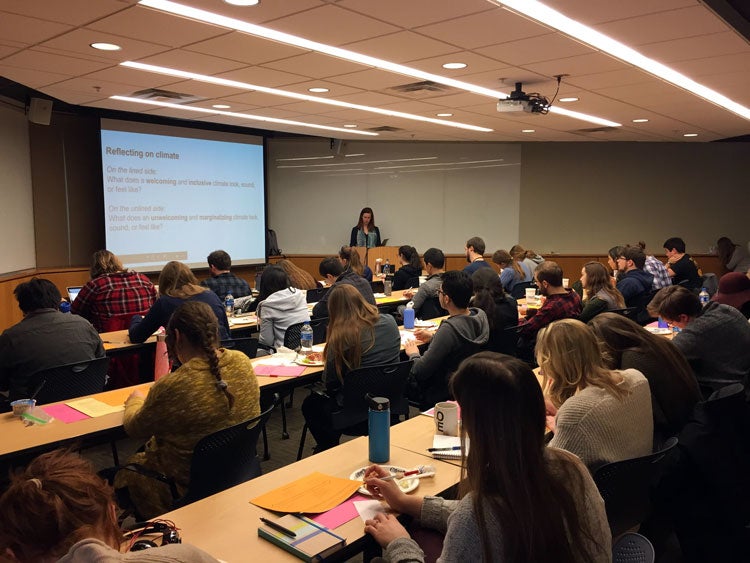
May 9, 2019
Discussion: Large Scale Oral Exams in Organic Chemistry
Host: Ellen Aguilera
Back to the Future: Exploring the Value of Oral Examinations in Organic Chemistry
On Thursday, May 9, CSIE|UM held a round table style discussion with invited speaker Professor Mark Lautens from University of Toronto. The event was titled, “Back to the Future: Exploring the Value of Oral Examinations in Organic Chemistry.”We had about 40 people register and attend the event. We allowed the audience to have breakfast catered by Panera for the first couple of minutes where they talked amongst themselves while some introduced themselves to Mark.
We started the event with welcoming Mark and gave him the floor to introduce us to his method of oral examinations for organic chemistry, such as why he began them and how he implements them. He stated that he began oral exams because after years of being in classes and teaching, he knew that everyone learns differently and therefore performs on tests, differently. For instance, some people do great on multiple choice questions while other flourish on short/long answers. Others struggle on written exams while others do well on oral exams. However, most colleges do written exams so we can rarely see those who do better on oral exams. In his organic chemistry classes, he gives both written and oral exams. The oral exams are given once a semester where they meet individually with Mark (sometimes another professor is in the room to avoid bias) and go through a 10-15 PowerPoint presentation of a synthesis or name reaction of their choice (approved by Mark). During this time, they go through the material and are interrupted with questions by Mark.
From there, the audience jumped in with questions/comments on his method, which opened the floor for discussion. This format allowed for the audience along with Mark to highlight the pros and cons of this method. The pros were that students get one-on-one interaction with the professor to create a relationship where undergraduate students aren’t intimated by their professor. In addition, it gives those students who struggle on written exams to do better and feel better about their grades. Furthermore, it allows students to practice talking chemistry and start to understand it rather than try to memorize answers.
The cons are some students are terrified of speaking in front of their professor and that might hold back their performance. Another con is that students must have access and knowledge of using chemistry searching tools (i.e. search papers online, sci-finder, ChemDraw) where at some institutions might not be possible or limited resources. In addition, this method is highly time consuming for the professor, so this is quite limited to class size and time spent with each student. Mark was very open with answering and analyzing the pros and cons, and even took some feedback form the audience to improve his method. For instance, an audience member asked if he gave his students feedback from their oral exams, and he answered honestly that since it was already time consuming, he didn’t, but saw this would be beneficial for his students and discussed ways with the audience he could implement this.
Overall, this round table discussion was useful for those who want to go into teaching to determine whether or not they would like to do it. In summary, the pros really override the cons for oral examination so if someone has the ability to do it for a small class size that would be fantastic!











